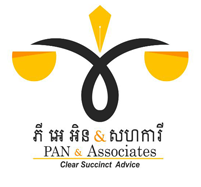Construction projects are inherently complex, involving multiple parties, substantial financial investments, and a myriad of regulations and standards. In Cambodia, as the construction sector continues to expand, the potential for disputes has similarly increased. Understanding the nature of these disputes and the legal landscape is crucial for both contractors and clients.
- Common Causes of Construction Disputes
- Contractual Issues: Misunderstandings or disagreements over contract terms, such as scope of work, timelines, and payment schedules, are frequent sources of conflict.
- Delays: Delays in construction can be caused by various factors including unforeseen site conditions, weather, or supply chain issues. These delays can lead to significant financial losses and disputes over liability.
- Quality of Work: Disputes often arise when the completed work does not meet the expected standards or specifications outlined in the contract.
- Payment Disputes: Disagreements over payments, whether due to incomplete work, perceived overcharging, or non-payment, are common in the construction industry.
- Changes in Scope: Alterations to the original project scope, whether due to design changes or additional work requests, can lead to disputes if not properly documented and agreed upon.
- Legal Framework Governing Construction Disputes in Cambodia
Cambodia’s legal framework for resolving construction disputes involves a combination of contract law, commercial law, and specific regulations governing the construction industry. Key legal instruments include:
- The Civil Code: Governs contractual relationships and obligations, including construction contracts.
- The Commercial Arbitration Law: Provides for the resolution of commercial disputes, including those in the construction sector, through arbitration.
- The Construction Law: Regulates construction practices and standards, aiming to ensure safety and quality in the construction industry.
- Dispute Resolution Mechanisms
- Negotiation and Mediation: These are often the first steps in resolving construction disputes. Both parties attempt to reach a mutually acceptable solution with or without the assistance of a mediator.
- Arbitration: Given its confidentiality and the ability to choose arbitrators with specific expertise, arbitration is a preferred method for resolving construction disputes in Cambodia.
- Litigation: As a last resort, parties may seek resolution through the Cambodian courts. While litigation can be time-consuming and costly, it provides a formal avenue for dispute resolution.
- Best Practices to Avoid Construction Disputes
- Clear and Detailed Contracts: Ensuring that contracts are comprehensive and clearly outline the rights and obligations of each party can help prevent misunderstandings.
- Regular Communication: Maintaining open and regular communication between all parties involved in the project can help address issues before they escalate into disputes.
- Proper Documentation: Keeping thorough records of all project-related communications, changes, and agreements can be crucial in resolving disputes.
- Timely Payments: Adhering to agreed payment schedules can prevent financial strain and build trust among parties.
- Conclusion
Construction disputes can significantly impact the timeline and cost of projects. Understanding the common causes and legal frameworks for resolving these disputes is essential for all stakeholders in the construction industry in Cambodia. By adopting best practices and seeking timely legal advice, parties can mitigate the risk of disputes and ensure smoother project execution.
At PAN & Associates, our experienced team is dedicated to providing comprehensive legal support to navigate the complexities of construction disputes. Contact us to learn more about how we can assist with your construction law needs. Contact us at info@pan-associates.com

